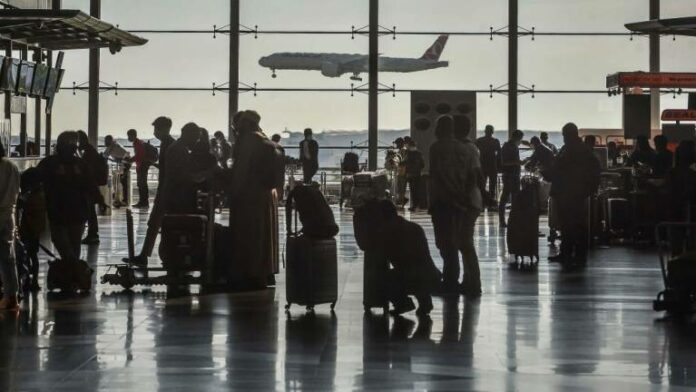KUALA LUMPUR, Dec 27 — The Malaysian Aviation Commission (Mavcom) has revised upwards its forecast for passenger traffic to 84.5 million and 86.5 million for 2023, surpassing earlier projections.
In its 14th edition Industry Report ‘Waypoint’ released today, the commission also anticipated total passenger for 2024 to exceed 93.9 million.
Mavcom said Malaysia’s aviation sector has experienced robust growth in passenger traffic post-COVID-19 pandemic, reaching 69.9 million in the first ten months of 2023 and the impressive growth has led it to revise its 2023 forecast.
The commission earlier projected air passenger traffic to rise between 40 per cent and 52 per cent year-on-year (y-o-y) in 2023 to reach between 74.6 million and 80.8 million passengers.
Mavcom executive chairman Datuk Seri Saripuddin Kasim said the growth in passenger traffic highlighted the ongoing recovery of the aviation sector in Malaysia.
“Looking ahead, we expect to see a more pronounced recovery in passenger traffic for 2024.
“The commission anticipates passenger numbers ranging from 93.9 million to 107.1 million. This indicates a recovery of close to 98 per cent of the pre-COVID-19 pandemic levels seen in 2019,” he said.
According to Mavcom, the upsurge is expected to be driven by increased domestic and international travel, particularly to China and the Asean region.
“However, there are potential challenges to consider, such as rising jet fuel costs, the ringgit’s depreciation, possible delays in aircraft deliveries, and workforce issues, which add an element of caution to our projections,” he added.
As for Malaysia’s air cargo volume, Mavcom said it saw a downturn of 15.3 per cent y-o-y, translating to 4.7 billion freight tonne kilometres (FTK) in the third quarter of 2023.
Consequently, the commission adjusted its 2023 air cargo forecast downward, and is now expecting a decrease of between 13.5 per cent and 14.1 per cent, equating to 18.7 billion to 18.8 billion FTK.
Despite this downturn, a positive shift is forecast for 2024, with anticipated cargo growth ranging from 6.0 per cent to 6.6 per cent, potentially reaching 19.8 billion to 20.0 billion FTK.
This expected upswing is attributed to the low base effect in 2023, a possible improvement in the global technology cycle, ongoing recovery in China, and broader economic stabilisation, it said.
According to Mavcom, Malaysia retained its position as the fifth most connected country in Asean, achieving an impressive connectivity score of 79.7 in the first three quarters of 2023.
The Kuala Lumpur International Airport, Terminal 1 upheld its status as the third-most connected airport in the region, with a direct air connectivity score of 59.9.
The Singapore International Airport remained at the forefront with a score of 102.1, followed by Bangkok Suvarnabhumi Airport at 89.1.
During the first nine months of 2023, Mavcom granted a notable total of 173 additional Air Traffic Rights (ATRs), of which 44 ATRs were allocated for domestic routes and 129 ATRs for international destinations.
Leading the pack in securing international ATRs was Malindo Airways Sdn Bhd (Batik Air) with a total of 35 ATRs, followed by AirAsia Bhd and Malaysia Airlines Bhd with 30 and 18 ATRs, respectively.
In terms of regional distribution, Asean received the largest share with 48 ATRs granted by the commission. This was followed by the rest of Asia with a total of 30 ATR approvals for flight routes encompassing Bangladesh, Hong Kong, Japan, Macau, Maldives, South Korea, Sri Lanka, Taiwan, and Uzbekistan.
“This distribution underscores Mavcom’s commitment to expanding both domestic and international air connectivity, with a particular focus on enhancing links within the Asean region,” it added.
















